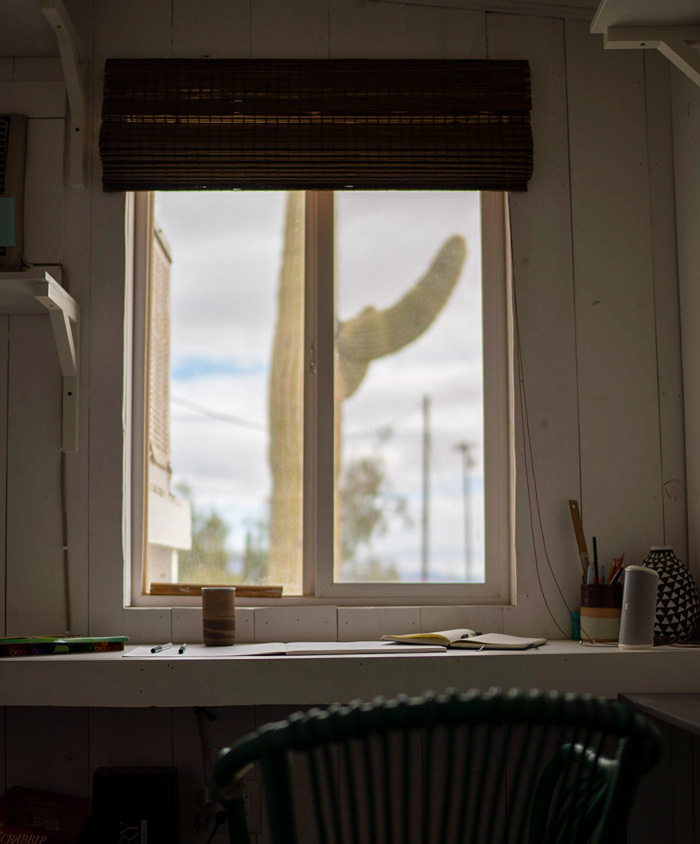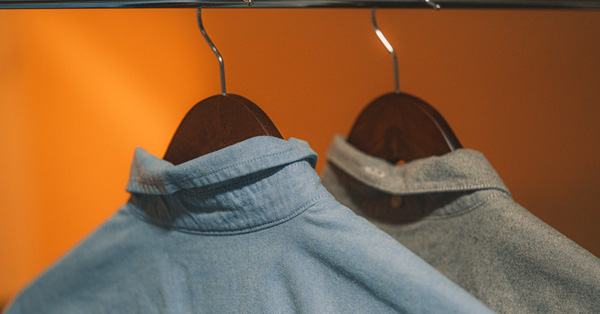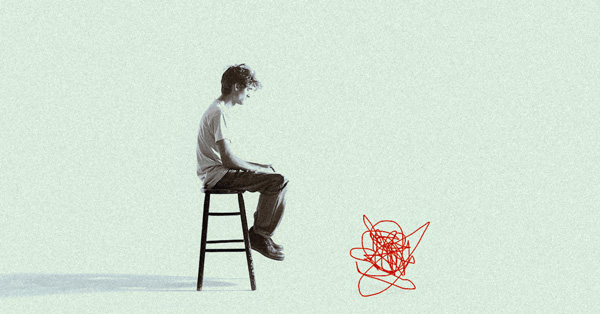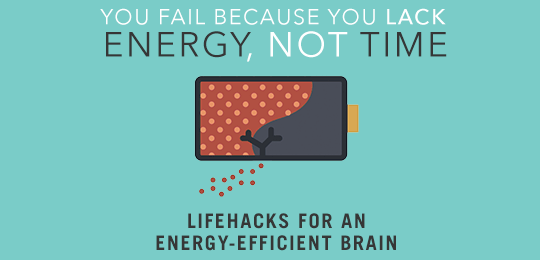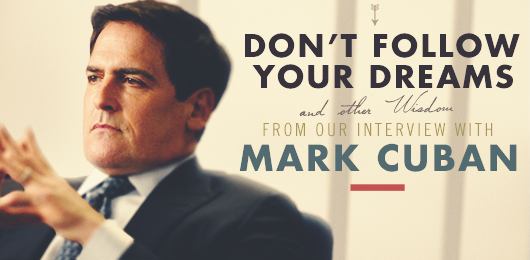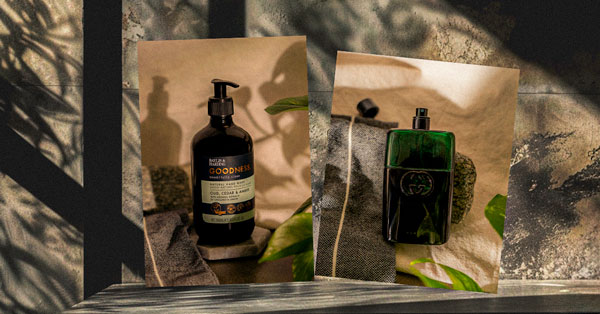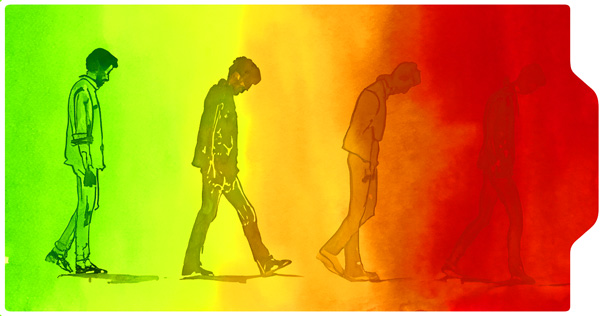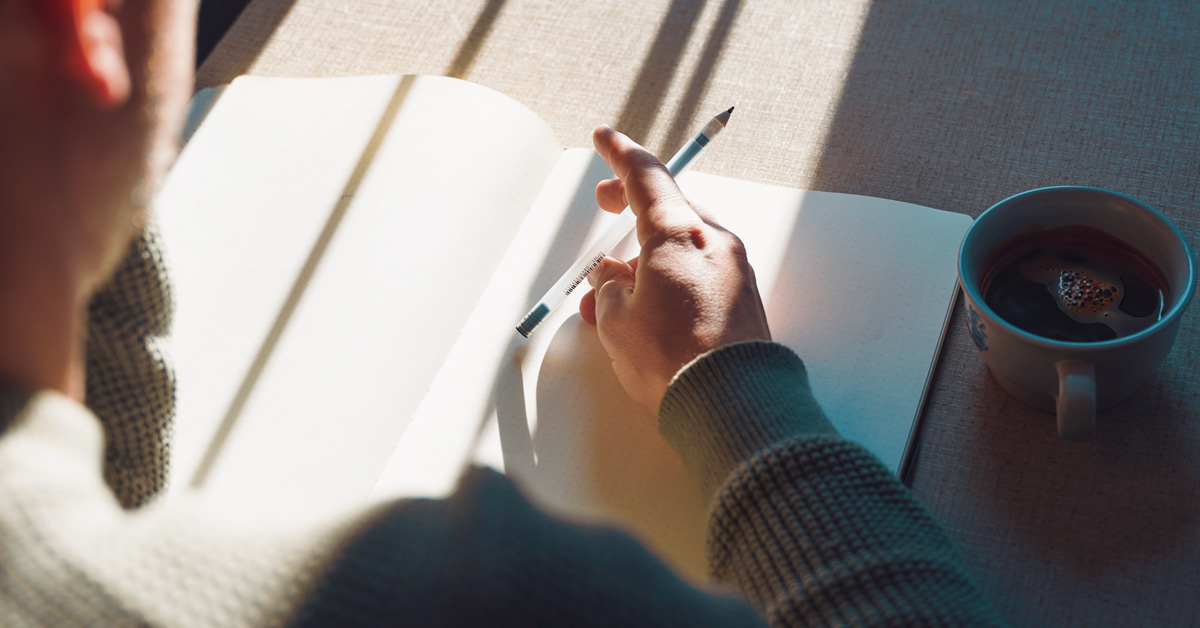
This piece is a part of our Begin Again series, and incorporating the 3 mental frameworks outlined in the intro can help make your journaling even more meaningful and productive.
Across the ages, great doers and thinkers have been united by qualities, disciplines, and habits that transcend both time and culture. Their codes of conduct, relentless ambitions, inextinguishable passions, and perhaps most surprisingly, this simple, daily habit:
Keeping a journal.
Marcus Aurelius had one. So did Mark Twain. Theodore Roosevelt wrote faithfully in his, and so does Henry Rollins. From Da Vinci to Dostoevsky, Ernest Hemingway to Anne Frank to Virginia Woolf (and we haven’t even scratched the surface here), exceptional people have all regularly devoted a portion of their day to writing and reviewing their actions, thoughts, and feelings. Ralph Waldo Emerson, one of the grandfathers of self-development, even went so far as to declare that there were only two things young men truly needed: a room to themselves, and a journal.
“…Keep a journal… It is not for what is recorded… but for the habit of rendering account to yourself of yourself in some more rigorous manner and at more certain intervals than mere conversation or casual reverie of solitude require.
-Ralph Waldo Emerson,
“The Head,”The Early Lectures of Ralph Waldo Emerson
Yet in spite of that, somewhere in the last century, we lost that art. Our focus shifted, moving away from self-reflection and towards self-promotion. Daily entries have given way to blogs, vlogs, tweets, status updates, and photo captions. Yes, we write more in a month than many of our ancestors did in their lifetimes, but we’re inevitably writing for others, searching for an audience or pitching to our followers. And while there’s nothing wrong with that, it’s exactly those reasons that make journaling such an indispensable discipline for the modern man. Simply put, we need journals now more than ever.
The Benefits of Journaling & How It Changes Things
1. Mental Circling
Perhaps the most obvious benefit of journaling is the opportunity it gives us to simply vent and vent safely. Not in some Youtube comment section where our rants and raging will be recorded for all time (or worse, come back to bite us). This is a completely private space for us to spill our souls onto the page, and once we’re done, examine what we’re feeling and identify what’s causing us to feel that way.
One of the most helpful outcomes of journaling is its ability to stop thought loops. It has been described that writing a thought has a way of allowing the mind to stop refocusing on it.
Journaling has been shown to significantly reduce intrusive thoughts, according to research published in the APA's Journal of Experimental Psychology: General. This benefit extends beyond the act of journaling itself; individuals who engage in this practice experience a lasting decrease in the frequency and intensity of unwanted thoughts. By processing and organizing their thoughts through journaling, people not only alleviate immediate stress but also contribute to long-term improvements in their mental well-being.
If that sounds familiar, it’s because it’s the exact same principle behind mindful meditation – not an absence of thought but a recognition of our thoughts, journaling provides a time and place for us to consciously acknowledge our thoughts and work through them.
If you tend to be a natural worrier like me, then journaling isn’t just helpful but essential in offering some much needed perspective. There’s few things that are better at grounding us than a black-and-white record of how we’ve gotten through tough times before.
2. Improved Decision-making
Journaling, endorsed by experts like Nobel laureate Daniel Kahneman, enhances our ability to make strong decisions. By utilizing a decision journal and documenting key decision factors, emotions, and expected outcomes, individuals gain insight into their decision patterns, reducing bias and improving choices through self-awareness and learning from past decisions.
3. Journaling is Scientifically Proven to Improve Mental Health
Journaling offers significant therapeutic advantages, particularly in managing mental health conditions like Major Depressive Disorder (MDD). Studies reveal that expressive writing, where individuals pen down their deepest thoughts and emotions, leads to notable reductions in depression scores. This improvement persists, indicating journaling's lasting positive impact on mental health.
A study conducted by Emmons and McCullough demonstrated the link between mental well being and journaling by assigning participants to different writing tasks. In one group, individuals were asked to write about things they were grateful for, while another group focused on daily hassles, and a third group engaged in neutral writing. The results indicated that those who practiced gratitude through journaling experienced better mood, coping abilities, and physical health compared to the other participants.
A narrative writing intervention has also proven effective for those with post-traumatic stress disorder (PTSD), offering an accessible, self-paced method to process trauma.
Further still, journaling simply makes us better writers and better at expressing ourselves in general, and there’s mounting evidence that regular journaling has a direct impact on improving overall mental and physical health, even increasing the rate at which we heal.
4. Developing Focus & Self-Discipline
Beyond the simple therapeutic aspect, a journal practice is a fantastic tool for developing self-discipline. The famed Meditations of Emperor Marcus Aurelius – the quintessential handbook on basic virtue – was originally simply a journal.
The proverbs that inspire us even to this day were simply written by a man trying to remind himself to be everything he could be. Our journals can do the same thing for us, as the entries we write in our finest moments encourage us when we’re feeling our worst.
Of course, keeping track of our progress is an essential step in accomplishing everything we mean to, whether it’s something as simple as a weekend to-do list or as extensive as building your physique.
For many folks, the toughest part of keeping a journal can just be getting started. After so many decades out of common practice, a few myths and misconceptions have sprung up around journaling that we’ll need to get rid of if we’re going to do this right.
Journaling Myths
Beyond sitting down to a blank page, one of the hardest parts about getting started with journaling for many people is just getting over some of the cultural baggage that journaling has.
Myth: Journaling Needs A Journal
While there’s something to be said for taking the time to slowly and deliberately penning your thoughts on actual paper, there’s no reason why a password protected Word document or an e-mail chain with yourself can’t work just as well (I personally do all three). The medium isn’t important, the self-assessment is.
Myth: Journaling Needs To Be Daily or in the Morning
While doing anything daily is a big help, turning journaling into just another chore or obligation is probably the quickest way of getting us to give up on it. Write when you need to, and you’ll likely find yourself writing daily, or even twice daily. One way or another, don’t think that you have to hit some perfect streak, and that missing a day, a week, or even a month is somehow a sign you should give up entirely.
Myth: Journaling Needs To Be Emotional
In the rare instances in which we see journaling brought up (usually in movies and on television), it’s usually done when the characters are at the heights of joy or the depths of despair. As we start out on journaling ourselves, it can be easy to feel that we’re not doing it “right” if we’re not wrestling with something profound. That’s absolutely not how it works – journaling isn’t about being deep, it’s about effectively reviewing and processing your days whatever they might contain. On that same note…
Myth: You Have to be a Good Writer to Journal
Journaling is, now and forever, a completely personal exercise. It’d be great if we developed the ability to write beautifully moving prose, but that’s not the point. The goal here is to “have a conversation with oneself”, and how we do that is going to vary from person to person. Some of us might write a soul-searching paragraph, some of us might pump out a stream-of-consciousness screed, some of us might jot in bullet points, and some of us might even just use hastily scrawled pictures like Charlie of It’s Always Sunny In Philadelphia.
Our purpose here is simply to communicate effectively with ourselves.
How to Journal
The good news is, there is no right or wrong way to journal. Like getting exercise, prayer, or meditating what matters is only that your process works for you and doesn’t keep you from doing it. If the process is prohibitive, review the first principles framework in the Begin Again intro.
Types of Journaling
“Journaling” isn't defined by a specific method, like “exercising,” there are many styles that can suit different goals or preferences.
The best part about journaling is your practice does not have to be the same every day. You can focus on emotional intelligence one day, creative stream of conscious the next, and gratitude after that. Or, you may prefer creating some kind of consistent format, where each session you identify what you've been feeling, thinking, something you're grateful for, and respond to a short prompt.
Here are a few prominent forms a journaling practice can take:
Stream of Conscious Journaling
Stream of consciousness journaling, exemplified by “Morning Pages” from Julia Cameron's “The Artist's Way,” involves writing down thoughts as they naturally occur, without editing or filtering. This technique, often done first thing in the morning and with a goal of simply filling 3 pages without a focus on quality, is known for enhancing creativity and self-awareness in daily life by providing an unstructured space for spontaneous expression.
Diary Journaling
Diary journaling is a more time-based form of journaling, typically focused on documenting daily events, thoughts, or feelings. Unlike stream of consciousness journaling, it is a recounting of the day's happenings and reflecting on them. This method is valuable for memory keeping, self-reflection, and tracking thinking over time.
Prompt-guided Journaling
Prompt-guided journaling begins by writing responses to specific prompts or questions. Unlike free-form journaling, it directs your focus to particular topics, ideas, or self-reflections. This method is particularly helpful for exploring specific aspects of your life, emotions, or values that you may not think to write about (or want to write about) on your own. See my 14 journal prompts below to get started.
Gratitude Journaling
Gratitude journaling is regularly writing down things you're grateful for, with the goal of fostering a positive mindset. This practice is often recommended for boosting mental well-being, especially for overcoming a sense of negatively or helplessness. By focusing on smaller and more abstract things you're grateful for over time versus large and obvious things, this practice can infiltrate your everyday life, allowing you to be happier and more at peace with day-to-day experiences.
Reflective Journaling
Reflective journaling involves writing about personal experiences, thoughts, and feelings with a focus on introspection and analysis. To do this, you reflect on specific feelings or events, interpret their significance, and consider how they impact your beliefs and future actions. This style of journaling encourages a deeper understanding of oneself and is often used for personal development and problem-solving.
This can be a routine practice that feeds into a larger, structured end of year reflection like I do. It can also be more philosophy or values based, my article The 12 Reasons People Don't Have What They Want is almost verbatim from a random, unexpected journal entry.
Vision Journaling
Vision journaling is a forward-looking form of journaling where you articulate and explore your future aspirations, goals, and dreams through writing. It differs from traditional diary-style journaling by focusing specifically on envisioning and planning for the future. In this practice, you write about your desired outcomes in various aspects of life, such as career, personal growth, relationships, or hobbies. This method serves as a powerful tool for discerning intentions, clarifying goals, and mapping out steps to achieve them. By regularly engaging in vision journaling, you create a written manifestation of your aspirations, helping to keep you motivated and focused on your long-term objectives.
Bullet Journaling
In contrast to long-form prose, bullet journaling is a popular organizational method that involves using bullets to log tasks, events, and notes in a concise, structured manner. It's a customizable system that combines planning, tracking, and reflection, often enhanced with creative elements like layout designs, doodles or calligraphy. This method is known for its efficiency and flexibility in helping manage daily life and long-term goals. Read How to Bullet Journal.
Decision Journaling
A decision journal is a tool that helps individuals improve their decision-making by recording and analyzing their current decisions. It helps to prevent hindsight bias, encourages self-awareness, and provides a feedback loop for better decision-making. The key components of a decision journal include recording the situation, problem statement, variables, complications, alternatives considered, expected outcomes, and personal feelings during the decision-making process. Read more about how to create a decision journal.
Dreamlining
Dreamlining, as conceptualized by Tim Ferriss, is a goal-setting method that blends vision-setting with specific timelines. It involves listing your deepest desires or goals, assigning them 6 to 12-month timelines, and breaking them down into actionable steps. This technique encourages a focus on personal aspirations over societal norms, aiming to transform distant dreams into achievable objectives within set time frames.
Habit Tracking Journaling
This is a method focused on recording and monitoring daily habits to build self-awareness and achieve personal goals. It often involves keeping a structured journal where you track the consistency of various habits, such as exercise, diet, or meditation as well as the daily factors that influence whether you meet or miss your habits. This technique helps in identifying patterns, fostering discipline, and measuring progress over time.
Affirmation Journaling
Affirmation journaling primarily aims to counteract negative self-talk by focusing on positive statements about yourself. This practice helps in reprogramming the mind to adopt a more positive and empowering belief system, combating self-doubt and reinforcing self-worth and confidence.
Creative Journaling
Creative journaling is an unstructured practice where you express yourself through various creative mediums such as short stories, lyrics, or drawings. This form of journaling fosters creativity and self-expression.
Things to Write in a Journal
For our generation in particular, this can be an especially tough habit to break. In a world where everyone’s online, it’s a daily battle just to stand out as an individual against the anonymous masses. We’re used to branding ourselves. We’re used to self-promoting. We’re used to relentlessly maintaining a pristine persona and assuming that everything we ever do will be permanently recorded. And that’s all the more reason for us to have a refuge from that.
The more we’re able to let go of that urge and explore ourselves uncritically, the more effective this discipline will become. Fundamentally, journaling gives us a place to be honest with ourselves while simultaneously training us to be more honest.
When we’re switching from one mask to another, it can be dangerously easy to lose track of the real us, and journaling gives us a chance to truly examine our own lives and grapple with the people we are.
Read our article for more tips on making journaling easy.
Write Everything
And anything.
To do lists. Deepest, darkest fears. Epiphanies. Insights. Questions. Things you like and dislike about the Batman universe. Our journals aren’t supposed to be a record of our thoughts but rather a place to figure out what those thoughts are.
Every one of us is a twisted jumble of impulses, instincts, insights, irrational fears, and Ghostbusters trivia. These pages are where we’re going to untangle what we’re thinking and feeling, and that’s only going to happen by letting ourselves spill out everything (again everything) onto the page.
In a world where it feels like everyone’s watching (or equally terrifying – like no one’s watching), it can be strangely difficult for us to truly see ourselves. Journaling not only helps us discover that, but allows us to ultimately become the people we actually are. Whether you’ve been on the road a while or if you’re just starting out on your journey, every one of us could benefit from the tried-and-tested practice of logging our distance.
How to Start Journaling:
1
Decide your medium, whether pen and paper, an app like Apple's Journal, voice memos, or something really cool I don't know even about.
2
Decide what type of journaling you want to do today, based on the list above or a creation of your own. Set a timer to keep it contained. Don't get ahead of yourself, just 5-10 minutes to start until you've created a habit is great.
3
Decide when and how often you want to do it. First thing in the morning? Before bed? Every Sunday morning at a coffeeshop? Consistency is what matters. Put reminders in your calendar.
14 Journal Prompts to Get You Started When You're Blank
Journaling doesn't need to start with a question but on some days or when just figuring out the habit, it's helpful to have something to center your thoughts on.
What is a negative emotion I remember feeling today? Anxiety, anger, depression, guilt, jealousy, impatience? What led up to that moment? In retrospect, do I feel justified that I felt that way about it?
Where was I and what was I feeling 5 years ago? How has that changed?
Think of an area in your life that you're frustrated with: What am I doing that isn't producing the results I want?
Who are the most important people in my life for maintaining my current lifestyle?
What is one thing I could do this week, no matter how small, that could start a snowball for the better? This month? This year?
What was the most intense positive emotion I remember feeling today? What was the situation?
Where have I made progress, even a small step, in a project I care about?
What is something that has happened recently that you're proud of but didn't receive credit for, either because no one recognized you for it or because you can't tell anyone?
What was the last disagreement you recognize being in the wrong about in your current or previous relationship? Without regret or guilt, knowing what you know now, would you do anything differently in a similar situation in the future?
What is something you judge yourself too harshly for?
What are three ways, large or small, that I've changed over the last year?
Describe the “character” you play in the lives of others. Is that the same or different from the character you'd like to be?
Without judgment, guilt, or pressure to do anything differently, what is a vice you have that may be unhealthy?
What was on your mind while you were getting ready this morning? On lunch break? While you were coming home from work?
Use the 3 Begin Again frameworks as the foundation for your journaling practice:
-
- Simply begin again: If you realize you've become distracted from your habits or goals, don't get demotivated. Clear your head and begin again.
- All decisions and brainstorming should reflect the four preliminaries:
-
- Your life is unfathomably rare, make use of it
- You will die. Your life is shorter than it seems, act with a sense of urgency while you still can
- The universal law of cause and effect. If you want change, you must take continual action.
- Fulfillment is not possible from buying things or being seen as important alone. Don't forget to anchor your ambitions to things that are not based on acquiring money, things, or status.
-
- Don't just blindly continue on a path that may not be working. Break your ambitions, goals, or problems down to their base ideas and create previously unknown, innovative solutions using first principles thinking.




